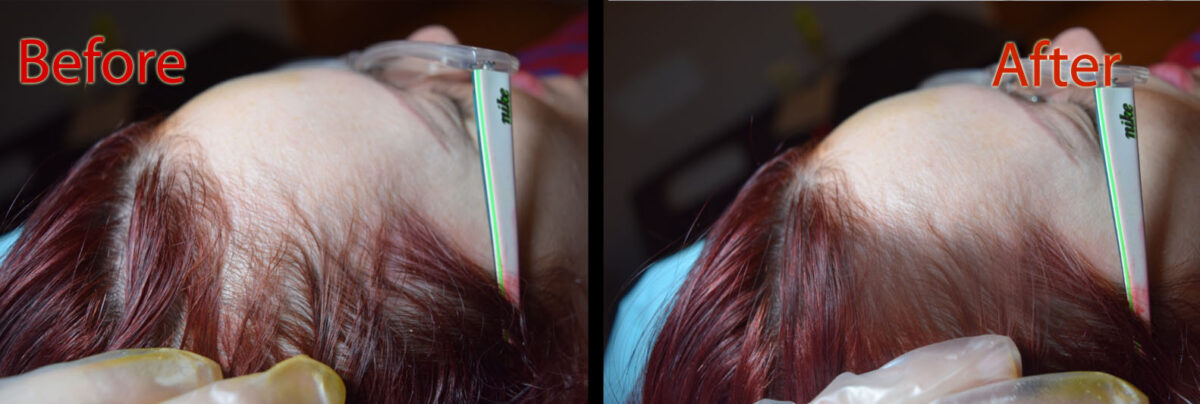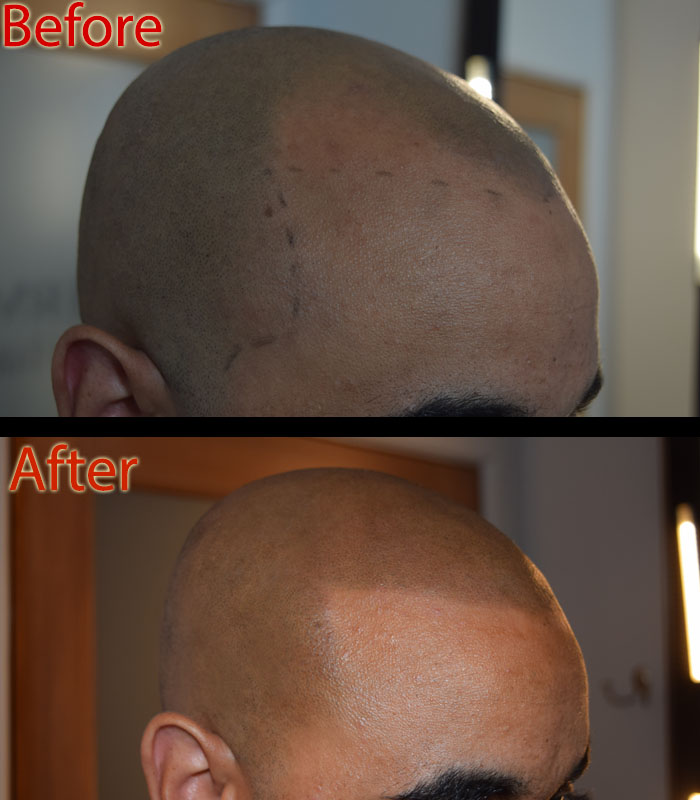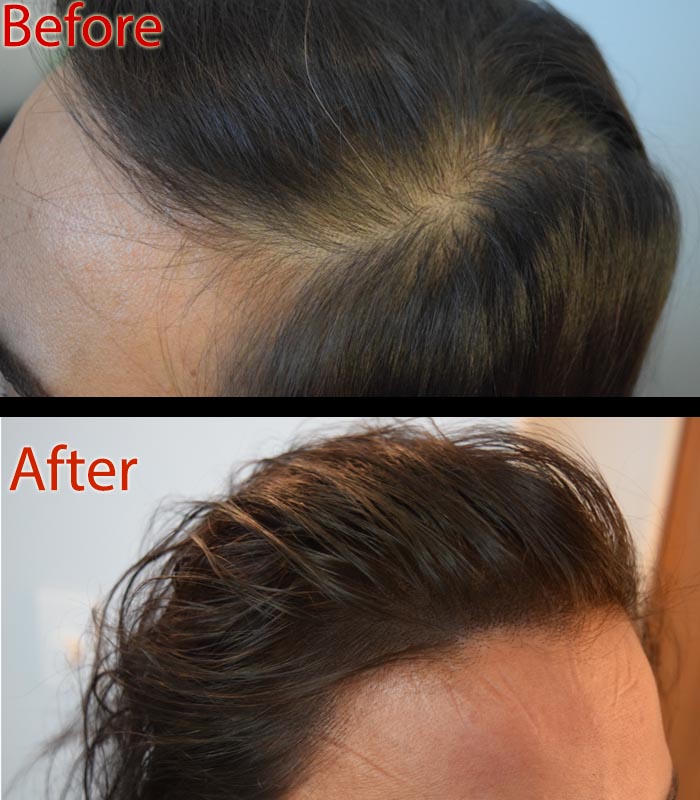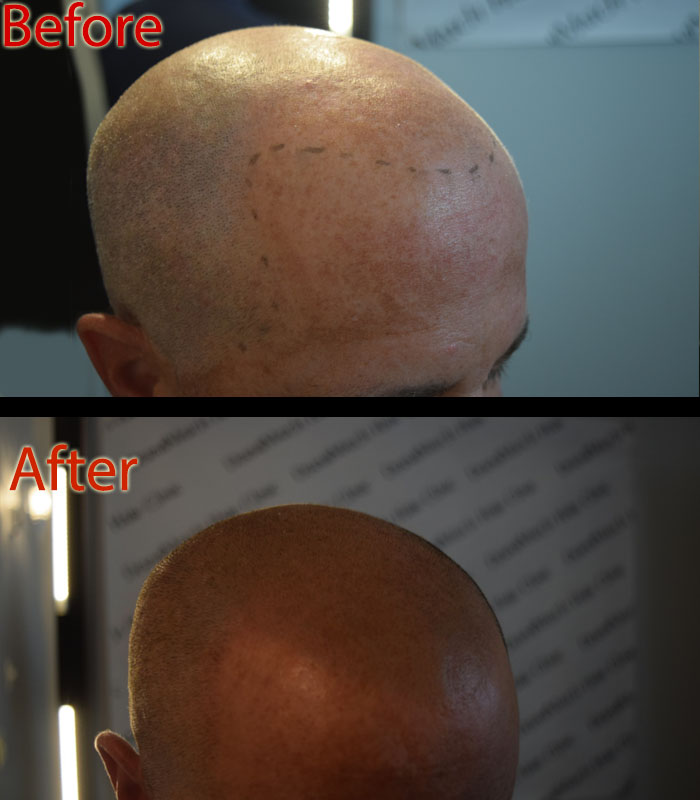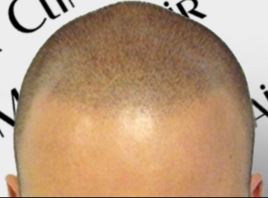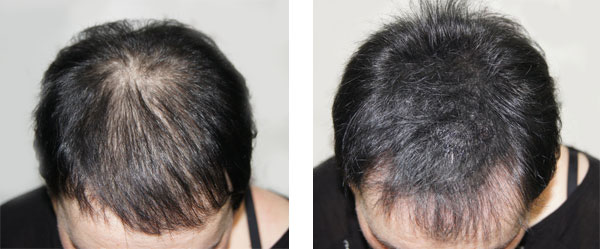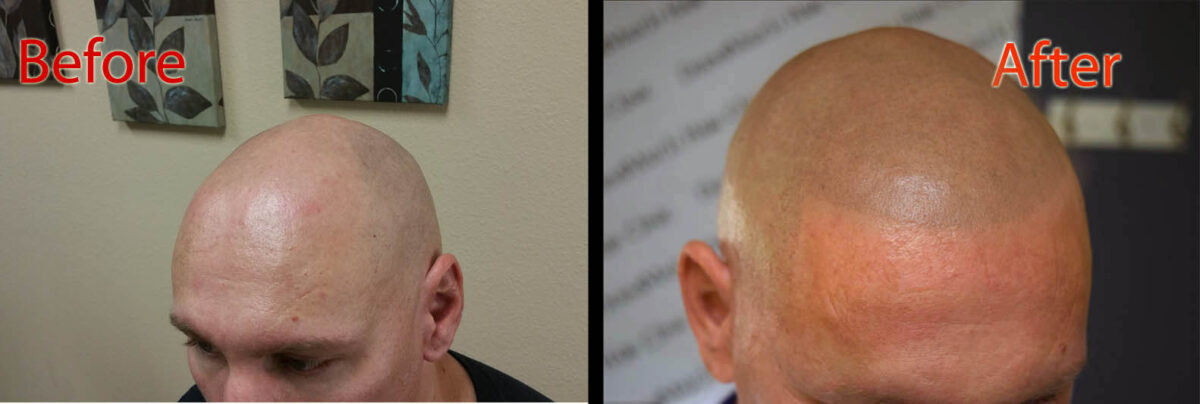Menopause comes in a woman’s life, often accompanied by a range of physical and emotional changes in women health. One of the less talked-about but deeply distressing symptoms for many women is the relationship between menopause and hair loss. Unlike the sudden shedding seen in stress-related hair fall, menopausal hair loss typically presents as gradual thinning, particularly at the crown or along the part line. This condition is referred to as female pattern baldness.
Menopause and Hair Loss: The Connection
The primary culprit behind hair loss during menopause is hormonal imbalance. Estrogen and progesterone begin to decline during perimenopause and postmenopause. These hormones are otherwise responsible for hair growth and keeping strands in the growing phase longer.
This hormonal shift can tip the scale in favor of androgens or male hormones, which can cause follicles to shrink, thus resulting in thinner, shorter, and weaker hair.
In addition to estrogen decline, other factors can exacerbate hair shedding and slow down hair regrowth. This includes such as genetic predisposition, thyroid dysfunction, nutritional deficiencies, and chronic stress.
Common Signs of Menopausal Hair Thinning
Signs of menopause-related hair thinning include a noticeable reduction in hair volume, a wider part or visible scalp in the crown area, increased hair shedding in the shower or on the pillow, and hair becoming finer, brittle, or slower to grow. Unlike some forms of alopecia, menopausal hair thinning rarely leads to complete baldness. However, the psychological impact can be significant, affecting self-esteem, body image, and confidence.
Can Hair Loss Be Reversed After Menopause?
Many women search for a hair restoration solution that goes beyond shampoos and temporary fixes. While complete reversal isn’t always possible, a combination of treatments can help manage and slow the progression. Topical minoxidil, an FDA-approved solution, can promote hair regrowth for some women.
Hormone replacement therapy may improve hair health, but it comes with medical considerations. Nutritional supplements rich in iron, biotin, zinc, and vitamin D may support scalp health. Low-level laser therapy is also gaining popularity as a non-invasive hair regrowth treatment.
These treatments often require long-term use and don’t deliver dramatic visual results. For women seeking immediate improvement in appearance and self-confidence, especially after significant hair density loss, there’s another option worth considering.
Scalp Micropigmentation for Menopausal Hair Loss
Scalp Micropigmentation has emerged as a safe, non-invasive cosmetic procedure that creates the illusion of fuller hair. The procedure helps replicate follicles using specialized pigment. For menopausal women experiencing diffuse thinning, SMP can restore the appearance of a denser scalp without surgery, drugs, or downtime.
Unlike hair transplants or hormone-based solutions, SMP provides instant visual improvement and long-lasting results. It can effectively camouflage the scalp where thinning hair exposes more skin, helping women regain a natural-looking hairline and the confidence that often fades with hair volume.
Whether used alone or in conjunction with other hair loss treatments, SMP offers a powerful, modern way to reclaim your hair and self-image during menopause. It’s not just about looks—it’s about owning your transformation.
Are you ready for SMP? Find the best Arizona scalp experts at DermiMatch Clinic so you can get the results you dream of.

